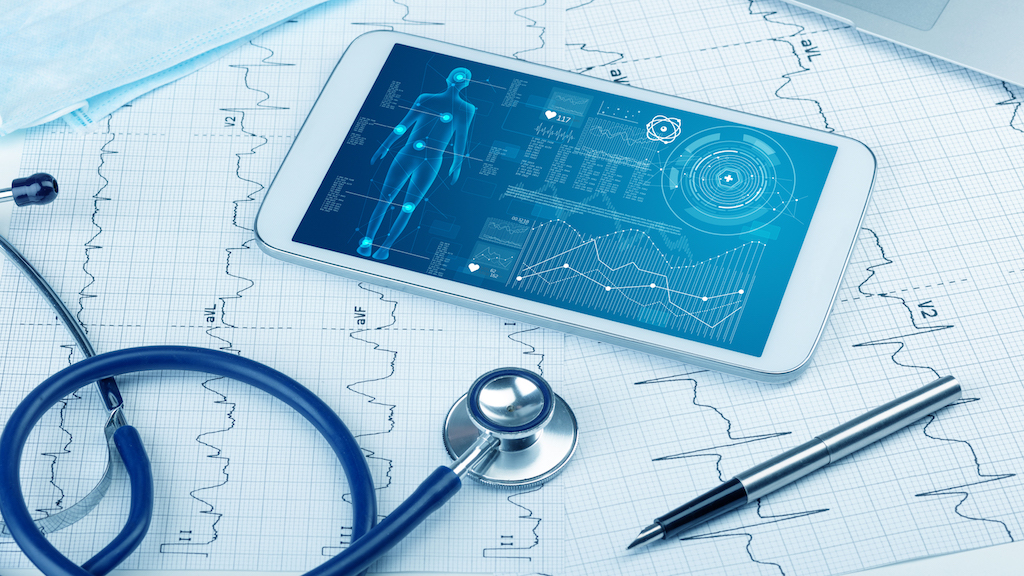 Researchers have found that with the advent of COVID-19, awareness, perception, and readiness of healthcare providers to adopt Electronic Health Record (HER) are increasing and this possesses an opportunity to transform healthcare service delivery.
Researchers have found that with the advent of COVID-19, awareness, perception, and readiness of healthcare providers to adopt Electronic Health Record (HER) are increasing and this possesses an opportunity to transform healthcare service delivery.
The researchers in a study, titled ‘Knowledge, perception, and readiness of health professionals towards the use of electronic health record during COVID-19 pandemic in Lagos, Nigeria’ concluded: “In light of our findings, it is clear that stakeholders in the healthcare delivery sector in Nigeria are willing and ready to adopt the EHR system. Even though as with most systems that have had to evolve toward a new method of working, there may exist some challenges with adopting EHR.
“Nevertheless, understanding some of these challenges and their unique affectation of the delivery of service in the facilities in these regions would enable developers of these EHR systems to innovate around bridging the gaps created by these barriers, especially while developing the digital framework down to adoption and use in a hospital facility. Now is a perfect time to harness the usefulness of the EHR system in driving better health service delivery in hospitals in Africa, especially Nigeria.”
The study, published in International Journal of Medicine and Health Development by Agbarakwe et al. has shown that paper-based record-keeping techniques contribute greatly to the discontinuity of patient care among healthcare providers, especially with COVID-19. “The lack of readiness to adopt the use of electronic health record (EHR) systems has resulted in the continuous use of a rather flawed paper system.”
The descriptive quantitative study carried out among healthcare workers across different disciplines working in Lagos State used an interviewer-administered online questionnaire to generate data.
Eighty five point four percent (85.4 per cent) of the respondents were below 35 years of age, whereas most of the respondents (93.08 per cent) had a personal computer and little below half of them (42.31 per cent) had a previous experience with the EHR system. Ninety three point nine percent (93.9 per cent) of the respondents perceived that EHR was better than the paper system, mostly citing the fact that it would speed up their work and 90.77 per cent wanted it to be adopted, even though 88.46 per cent felt that the lack of computer systems was a barrier. Most of the respondents had a good experience (81.54 per cent) and good perception (92.31 per cent) and were willing to use EHR systems (95.38 per cent).
The researchers further explained: “Health records are also vital in public health monitoring and assessment of the health indices of any country, and this is vital in making policies and actions that would drive the health of the citizens positively. As identified by the World Health Organisation, part of the challenges facing the Nigerian health system is inadequate health information system for monitoring and analysis of health indicators. The use of the paper system makes it nearly impossible to adequately collate patient’s information on a large scale as the cost of transcribing as well as analyzing hard copy data is expensive and inefficient. Hence, routine data that are collected from patients during their visit to the hospital cannot be employed properly to drive public health safety.
Irrespective of setbacks and flaws in the paper filing, paper filing still dominates the record keeping system in most Nigerian hospitals and clinics.
The EHR systems are built around systems that can produce results irrespective of data size, the variability in the time of its acquisition as well as the individual involved. It enables collating and processing of data to be smooth and promotes its usefulness in public health maintenance.
“The EHR system has the potential to turn around the health fortune of Nigeria. This will greatly impact on the country’s healthcare service delivery capacity, disease surveillance, and control. The availability of a well-developed and adequately supported open-source application can be adapted and redesigned to specificity. However, it is true that the introduction of EHR systems into any healthcare facility would not only affect the care given to patients positively but also facilitate the running of the health facility for all personnel toward achieving their roles in patient care. Hence, it is imperative to understand the perspective of the end users of the new solutions.”






